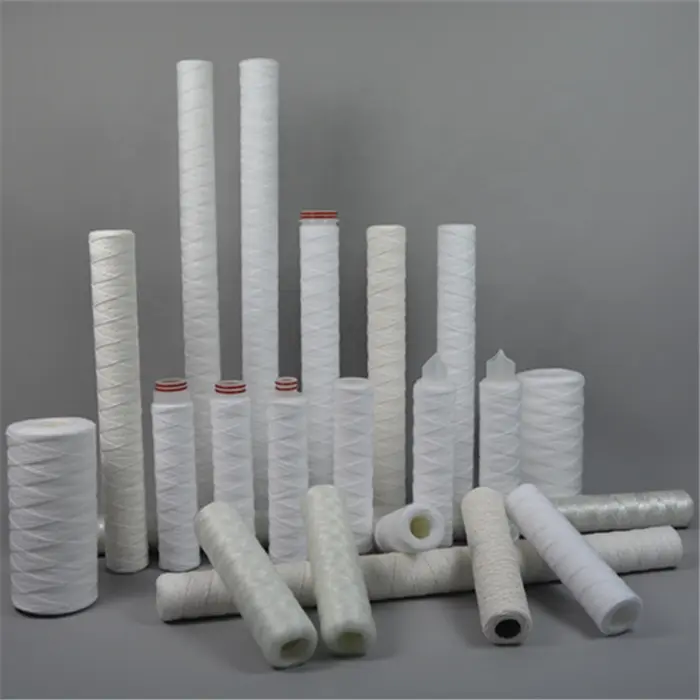Unveiling the Power 5 Micron vs. 20 Micron Water Filters
Choosing the Right Micron Level for Your Water Filtration Needs. In the realm of water filtration, the battle between 5 micron vs 20 micron water filters takes center stage. These micron levels play a crucial role in ensuring the purity and quality of your water supply. Let’s dive into the intricacies of these filters to help you make an informed decision for your specific requirements.
Decoding Microns: What Sets 5 Micron Filters Apart?
1. The Precision Game
At the forefront, 5 micron filters boast unparalleled precision. These filters are designed to catch even the tiniest particles, ensuring a thorough cleansing process. If your goal is to eliminate microscopic impurities, a 5 micron water filter is your go-to solution.
2. Ideal for Residential Bliss
Considering a home water filtration system? Opting for a 5 micron filter is a strategic move. It efficiently traps contaminants like sediment, rust, and other minuscule particles that might compromise the quality of your drinking water.
3. Balancing Act with Flow Rate
One caveat to be mindful of is the potential impact on flow rate. The finer the filtration, the slower the flow. While 5 micron filters excel in purification, there’s a trade-off with the speed of water delivery.
Embracing the Robustness: The 20 Micron Filters Advantage
1. Versatility Unleashed
In the 20 micron corner, versatility takes the spotlight. These filters strike a balance, effectively capturing larger particles while maintaining a respectable flow rate. Ideal for applications beyond residential use, they cater to various filtration needs.
2. Industrial Might
When it comes to industrial settings, 20 micron filters emerge as the stalwart guardians of water quality. They effortlessly trap larger contaminants, ensuring a steady supply of clean water in manufacturing processes and industrial facilities.
3. Finding Harmony in Flow
Unlike their finer counterparts, 20 micron filters manage to provide a seamless flow without compromising efficiency. This makes them a preferred choice in scenarios where a robust flow is non-negotiable.
Making Your Choice: Considerations and Conclusion
1. Assess Your Needs
Before making a decision, assess your specific filtration requirements. Whether it’s for your home or an industrial setting, understanding your needs is paramount.
2. Weighing the Trade-offs
Both 5 micron and 20 micron filters have their strengths and weaknesses. Consider factors such as filtration precision, flow rate, and the size of contaminants you need to eliminate.
3. The Final Verdict
In the grand showdown of 5 micron vs 20 micron water filter, there’s no one-size-fits-all answer. It ultimately boils down to your unique needs and preferences. Make an informed choice to ensure the purity and safety of your water supply.
In conclusion, the battle of micron levels in water filtration unveils a world of options. Armed with the knowledge of their strengths and applications, you can confidently select the filter that aligns with your specific requirements. Cheers to cleaner, safer water!
FAQs
What is the primary difference between 5 micron and 20 micron water filters?
The main difference lies in filtration precision. A 5 micron filter is finer, capturing microscopic impurities, while a 20 micron filter is more versatile, handling larger particles effectively.
Are 5 micron filters suitable for residential use, and how do they impact water flow?
Yes, 5 micron filters are ideal for residential settings, ensuring thorough purification. However, they may slow down water flow due to their finer filtration, a trade-off for enhanced purity.
In what scenarios are 20 micron filters preferred, and do they compromise flow rate?
20 micron filters shine in industrial settings, excelling at trapping larger contaminants. Surprisingly, they maintain a steady flow rate, making them a robust choice for various applications.
How can I decide between 5 micron and 20 micron filters for my specific needs?
Consider your filtration requirements and weigh factors like precision, flow rate, and the size of contaminants. There’s no one-size-fits-all answer; it depends on your unique preferences and application.
Stay tuned for more news & updates on Discover Tribune!






